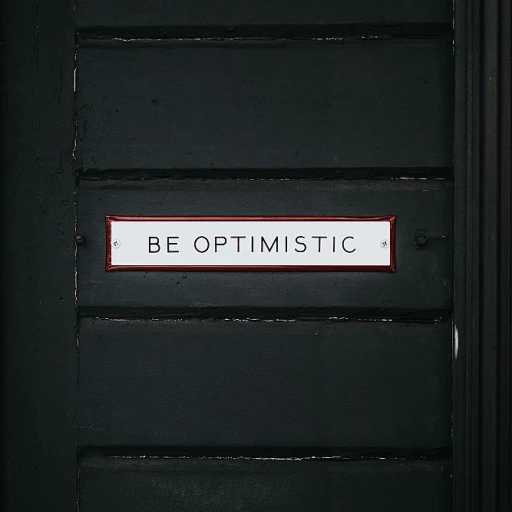The Importance of Building Relationships in Recruitment
The Critical Role of Candidate Engagement in Recruitment
In today's competitive job market, building meaningful connections with potential hires is more crucial than ever. The process of recruitment is not just about assessing skills and qualifications; it's about forging a relationship that can lead to a mutually beneficial partnership. Candidate engagement plays a critical role in this aspect, as it allows for a deeper understanding of a candidate's values, motivations, and expectations.
Effective engagement strategies go beyond the initial job application and encompass the entire journey a candidate takes through your recruitment process. This journey often starts even before a candidate applies, making it essential to maintain consistent and respectful communication throughout. Clear and open dialogue can significantly enhance the candidate experience, demonstrating that your organization values and respects their time and effort.
Part of successful candidate engagement involves using communication channels efficiently, as discussed further in upcoming sections. Moreover, incorporating social media and feedback mechanisms can provide platforms not only for sharing job opportunities but also for showcasing company culture and values. This makes it vital for organizations to refine their recruitment strategies continuously.
For organizations aiming to improve their recruitment processes, learning to enhance the candidate journey is a vital step. Understanding what candidates look for and how they navigate the recruitment landscape can help tailor communication and engagement strategies effectively. For more insights on enhancing the candidate journey, explore strategies to improve job seekers' experiences in the recruitment world.
Effective Communication: The Key to Candidate Relationships
Crafting Clear and Honest Communication
In the art of recruitment, effective communication is paramount to establishing strong relationships with job candidates. It is not merely about exchanging information but involves transparent and authentic exchanges that build trust over time. When candidates feel informed and respected, they are more likely to engage and form a positive perception of the organization.
Establishing a consistent line of communication from the initial contact helps in setting the groundwork for a productive relationship. Keeping candidates in the loop about each phase of the recruitment process not only helps manage their expectations but also diminishes any potential anxiety they might face. Whether it’s sharing updates about the status of their application or providing insight into the company's culture and values, timely communication can make all the difference.
Moreover, the personal touch in communication should not be underestimated. Addressing candidates by their names and acknowledging their skills and experiences can provide a sense of value and respect. This personalized approach often reflects the company's commitment to people-centric values, which can be a distinguishing factor for potential recruits.
Alongside verbal engagement, non-verbal cues are also significant. Recruiters should be aware of their tone in written communication, ensuring it conveys professionalism while remaining approachable and supportive. Every interaction is an opportunity to leave a lasting impression, making transparency and politeness key priorities.
As we delve deeper into the elements that contribute to successful talent acquisition, nurturing this open dialogue with candidates will play a crucial role in fortifying these professional bonds, ultimately leading to a thriving recruitment process.
Engaging Candidates through Social Platforms
In today's digital age, social media has become an essential tool for recruiters looking to engage with potential candidates. By establishing a presence on various social platforms, companies can connect with a wider array of talent, creating opportunities to form genuine connections long before there's a specific job opening.
One of the keys to successful engagement on social media is authenticity. Candidates are more likely to respond positively if they feel the interaction is genuine. This means sharing not only job postings but also insights about your company culture, employee stories, and industry-specific content that might interest potential candidates.
Platforms like LinkedIn, Twitter, and even Instagram offer unique opportunities to showcase your brand and establish meaningful interactions. For example, participating in relevant conversations and discussions can increase your visibility and demonstrate your organization's expertise and values.
Additionally, social media allows for personalized interaction with candidates. Recruiters can use these platforms to engage in direct messaging, fostering a more personal connection that can set the foundation for future hiring processes.
To enhance your talent acquisition strategy and understand how metrics can help in targeting the right candidates, consider exploring comprehensive insights on
the power of talent acquisition metrics.
Providing Constructive Feedback to Foster Trust
In the intricate world of talent acquisition, where building and nurturing relationships with potential candidates is crucial to success, an often-overlooked yet powerful technique stands out: providing feedback. This can be a game-changer in establishing a dependable rapport with job seekers.
Feedback serves as a vital bridge between candidates and recruiters. Frequent and meaningful feedback not only aids in candidate development but also demonstrates a commitment to their success. It reinforces the perception that recruiters genuinely care about the candidate’s professional growth and journey. By offering feedback, you are not merely fulfilling a procedural requirement; rather, you are showcasing your investment in their potential, thus significantly boosting the level of trust candidates feel towards your organization.
The timeliness of feedback is essential. No candidate enjoys the anxiety of waiting indefinitely for a response. Prompt feedback reflects reliability and respect for the candidate's time and effort, which helps in sustaining a positive perception of your organization. Even when the feedback is not entirely positive, providing constructive criticism in an empathetic manner fosters an environment of transparency, leading to deeper trust and mutual respect.
Additionally, feedback lays the groundwork for ongoing communication which is integral in maintaining candidate engagement throughout the recruitment process. As highlighted in earlier sections, effective communication can be the bedrock of strong candidate relationships. Feedback is an indispensable component of this communication strategy, offering insights and clarity that keep potential hires motivated and engaged.
To truly harness the power of feedback in building trust, it is crucial to tailor it to the individual's journey and aspirations. This personalized approach reinforces the unique value each candidate brings to the table, which was emphasized in our earlier discussion about creating a company culture that attracts and retains talent. By doing so, you not only improve the candidate experience but also position your organization as a thoughtful and considerate employer, enhancing your overall talent acquisition strategy.
Leveraging Technology for Better Candidate Relationship Management
Embracing New Technologies to Enhance Candidate Relationships
In our ever-evolving digital age, technology has become an invaluable ally in cultivating robust relationships with candidates. Leveraging the right tools not only makes the recruitment process more efficient but also helps ensure a more personalized candidate experience. As previously discussed, effective communication is crucial, and technology can support this by streamlining interactions and providing timely updates to candidates, thus enhancing their overall experience.
Key platforms offer applicant tracking systems (ATS) that allow recruiters to manage and monitor candidate interactions seamlessly. These systems can automate routine tasks such as sending emails or scheduling interviews, freeing up time for recruiters to focus on more meaningful engagement with candidates. By maintaining a well-organized record of candidate communications, organizations can ensure consistent messaging and responsive communication, which contributes to building trust.
Additionally, integrating artificial intelligence (AI) into recruitment processes can significantly improve how recruiters interact with candidates. AI-powered chatbots can provide instant responses to candidates' queries, offering a level of accessibility that candidates increasingly expect. This immediacy in communication helps maintain engagement and can significantly enhance a candidate's perception of the organization.
Furthermore, data analytics tools can be leveraged to understand better and predict candidate behavior, enabling recruiters to tailor interactions to individual preferences and needs. By analyzing previous interactions and feedback, recruiters can craft more dynamic relationships with candidates, further strengthening the trust and connection between them.
As we focus on creating a welcoming company culture and engage candidates through thoughtful feedback, integrating technology can complement these efforts by providing scalable solutions that enhance the candidate experience without losing the human touch. It is through this balance of technology and personalized engagement that we can cultivate strong, lasting relationships with top-tier talent.
Creating a Company Culture That Attracts and Retains Talent
Crafting a Magnetic Company Culture
In the competitive world of talent acquisition, a company's culture is more than just a buzzword—it's a magnet that attracts and retains top talent. When candidates evaluate potential employers, they are increasingly prioritizing cultural fit alongside traditional factors like salary and job role. A strong, appealing company culture not only draws candidates in but also fosters long-term relationships, reducing turnover and enhancing overall satisfaction.
Building a compelling company culture starts with authenticity. Candidates are savvy and can easily spot when a company is not genuine in its cultural claims. It's essential to ensure that your company's values, mission, and day-to-day operations align with the cultural image you project. This alignment builds trust, a recurring theme in effective recruitment strategies, and sets the foundation for meaningful relationships with candidates.
Transparency plays a crucial role in communicating your company culture. Share stories and testimonials from current employees that highlight real experiences and values. This approach not only humanizes your brand but also provides candidates with a realistic view of what working at your company is like. Coupled with effective communication strategies, as discussed earlier, transparency can significantly enhance the candidate experience.
Moreover, fostering an inclusive and diverse workplace is key to a vibrant company culture. Candidates are drawn to environments where they feel valued and included, regardless of their background. By promoting diversity and inclusion, you not only enrich your company culture but also broaden your talent pool, attracting a wider range of candidates.
Finally, leverage technology to reinforce your company culture. Use digital platforms to showcase your culture through engaging content, such as videos and blogs, that highlight your company's unique attributes. Technology can also facilitate ongoing engagement with candidates, keeping them connected and informed about your company's culture and developments.
In conclusion, creating a company culture that resonates with candidates requires intentionality and commitment. By focusing on authenticity, transparency, and inclusivity, you can build a culture that not only attracts top talent but also retains it, fostering strong, lasting relationships with candidates.



